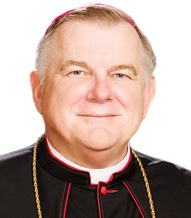We live at a time when institutions and the people who represent them (i.e. the system) have lost credibility: this is true whether we are speaking of academia, business, the press or the Church. This explains, in great part, the populist explosion throughout the Western world. Populism on the left blames the “economic elites” while, on the right, populism rails against the cultural and intellectual elites.
A backlash against globalization and multiculturalism allowed Donald Trump, a real estate mogul and a reality TV star, to lead a populist insurgency against a political establishment that was perceived to be “out of touch” and too beholding to those elites.
In the Wall Street Journal, Peggy Noonan, in commenting on the shock waves — welcomed by some and distressing to others — that the Trump presidency has already brought to Washington observed: “Everyone’s political views are now emotions and everyone now wears their emotions on their faces.” (Wall Street Journal, 2/3/17).
[hotblock]
This was certainly evident in the widespread protests that followed President Trump’s executive orders on refugee issues and the related travel ban. The original order halts the entire refugee admissions program for 120 days, cuts the number of refugees admitted from 110,000 to 50,000, and suspends resettlement of refugees from Syria, Iraq, Iran and several failed states in the region.
The executive orders provoked strong reactions — and fears. In Miami-Dade County on Feb. 1, in the wake of the president’s executive orders and the county mayor’s attempt to escape the label of having endorsed a “sanctuary city,” a near panic resulted as (unfounded) rumors of immigration round-ups on street corners spread like wildfire among the county’s undocumented residents. Public schools reported increased absenteeism as parents are afraid of sending the kids to class.
The executive orders were challenged in the courts, protested on the streets and criticized strongly by faith leaders, including spokesmen for the U.S. Catholic bishops, Catholic Charities and other agencies. And, as Peggy Noonan observed, “There was no Republican in Washington — not one — on the Hill or within the party structure who did not privately call the order a disaster.”
But ultimately, the blame lies in Congress’ failure to legislatively fix an antiquated and inadequate — and thus broken — immigration system. Comprehensive immigration reform has been the unfinished business of Congress for more than 15 years.
[hotblock2]
The system is broken. It does not adequately address the need for reliable labor flows — which is why we have 11 million undocumented in the country (who are not sleeping under bridges but working, even if in the informal economy). At the same time, due process for asylum seekers is severely compromised by overloaded dockets and under-resourced advocates.
While some rail against rewarding “law breakers,” the majority of those in the U.S. without proper documents harm no one but work hard to provide better opportunities for their families. A pathway to legal residency and possible U.S. citizenship for these people would allow ICE (Immigration and Customs Enforcement) to devote resources to apprehending the “really bad apples” — violent criminals and terrorists — instead of chasing nannies and food service workers.
The administration claims it wants to implement “extreme vetting” to protect the American people. Let’s encourage it to put in place whatever “extreme vetting” it deems necessary. But vetting should give no quarter to xenophobic intolerance or nativism. Nor should the vetting process drag on: too many lives are at risk.
Our refugee resettlement program, long an example of cooperation between the government and faith-based organizations, is a life-saving program for some of the world’s most vulnerable people.
At the same time, Congress is accountable for our broken immigration system and only Congress can fix it. One place to start would be to revive the Dream Act, which would give a path to citizenship for those brought here as children. These “dreamers” are now protected by DACA (Deferred Action for Childhood Arrivals) — a temporary holding action by President Obama when Congress failed to pass the Dream Act.
President Trump has said that the “dreamers” do not have much to fear: but rather than rely on that, Congress should extend DACA with the BRIDGE Act immediately, while working across the aisle for a permanent and comprehensive solution to our broken immigration system.
PREVIOUS: Love and mercy in politics? It’s so crazy it just might work
NEXT: Today’s judgment on the past may become tomorrow’s indictment




Let’s accept the Archbishop’s premise that Congress is remiss in addressing immigration. Ah, the details. For instance just today on the KYW radio was a discussion of HB-1 work visas. Now these visas are awarded to foreigners (can we use this word anymore) who possess unique highly specialized skills that cannot be found among our domestic work force. Sounds good right? Well one of the “unique skills” or professions is motel manager. Now does anyone seriously believe there are no Americans capable of being a motel manager?